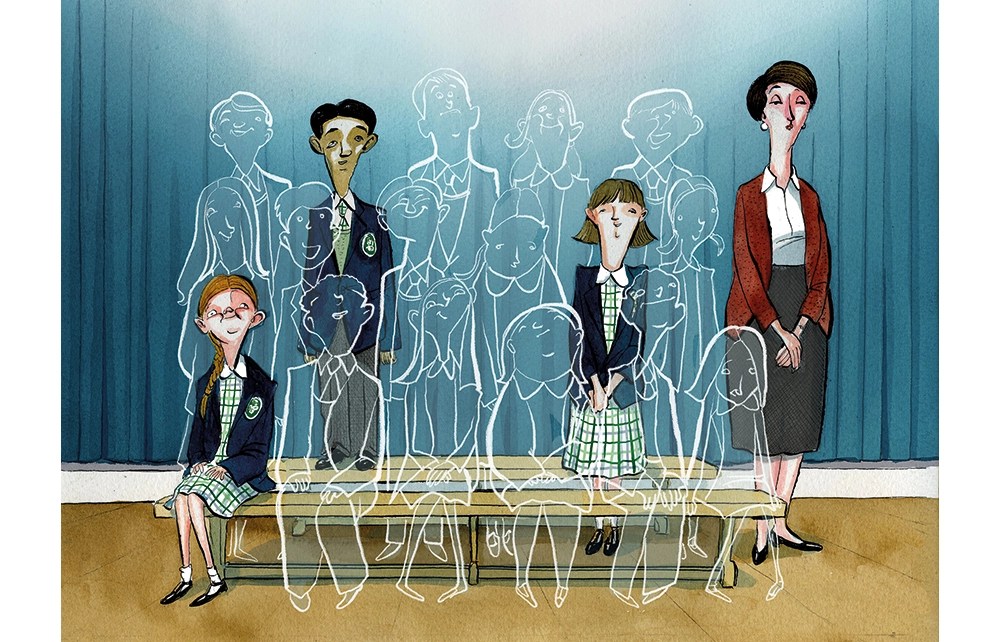Some 140,000 children missed more than half of the school days they should have attended this spring. Research by the Children’s Commissioner, published today, finds that only 5 per cent of these ‘severely absent’ kids go on to achieve five GCSEs. For year ten and 11 pupils who are persistently absent – meaning they miss one day of school a fortnight – just over a third get the minimum five GCSEs. For rarely absent children the figure is 78 per cent. The Commissioner, Dame Rachel De Souza, is calling for attendance league tables to be set up.
It’s no surprise that attendance dropped during Covid. But after lockdown many children just simply didn’t come back to school, as Harriet Sergeant pointed out in a cover piece for the magazine earlier this year. When schools reopened everyone expected business as usual. In fact, tens of thousands of children went missing. Absence numbers are still at record highs and more than double the level they were pre-pandemic. The Children’s Commissioner now calls the problem ‘endemic’.
This lockdown damage hits the poorest hardest. Last year, pupils on free school meals or living in the most deprived areas had a persistent absence rate that was twice that of the most well-off kids. Today’s study finds that same trend in exam results: while nearly half of pupils not eligible for free school meals achieved five GCSEs, for those eligible the rate collapsed to 28 per cent.
The absence issue and the long-term effects of decisions taken during the pandemic are exactly what the quarter of a billion pound Covid inquiry should be looking at. In the most recent autumn term a quarter of pupils were persistently absent. In 2018/19 it was 11 per cent. Yet, as Professor Carl Heneghan points out in this week’s cover story, the inquiry lawyers seem more interested in the trivialities of WhatsApp messages than the damage that persists in society to this day.
Yesterday though, children got a brief mention. The inquiry has previously heard from Professor Neil Ferguson – the architect of many lockdown models – that the side effects of lockdowns, such as damage to education, were not considered because the government didn’t ask about them. Dominic Cummings this week too spoke of the ‘appalling’ neglect towards the vulnerable in the run-up to lockdown decisions. And yesterday, Helen MacNamara, former Deputy Cabinet Secretary, spelt it out: ‘there wasn't enough thinking about the overall experience of children who might not have quite the same privileges as the people who are in rooms in Whitehall making decisions.’ Well quite. Whitehall either was in such deep water that it couldn’t put any resources into thinking about and mitigating side effects or it simply assumed – catastrophically wrongly – that middle England would protect the nation’s children whilst the state looked after the elderly and the NHS.
Now something has to be done, says the Commissioner, and quick results are possible. Her report found that as children are coaxed back to school, and attendance improves, then so does attainment – dramatically. More than half of pupils who were severely absent in year ten but then attended most of their classes in year 11 passed at least five GCSEs (including maths and English) compared to the 36 per cent who missed a fortnight on average in both years.
The Commissioner also included a series of recommendations in her report. The headline suggestion is that Ofsted should be given access to school attendance data in realtime so that support (and pressure) can be given to the most struggling schools. More data is usually always good. But the idea in the minds of children and parents – that no matter how bad things are, children should always go to school – seems irrevocably compromised by lockdown. Did anyone in government see that coming? The inquiry should find out.
This article is free to read
To unlock more articles, subscribe to get 3 months of unlimited access for just $5








Comments
Join the debate for just £1 a month
Be part of the conversation with other Spectator readers by getting your first three months for £3.
UNLOCK ACCESS Just £1 a monthAlready a subscriber? Log in